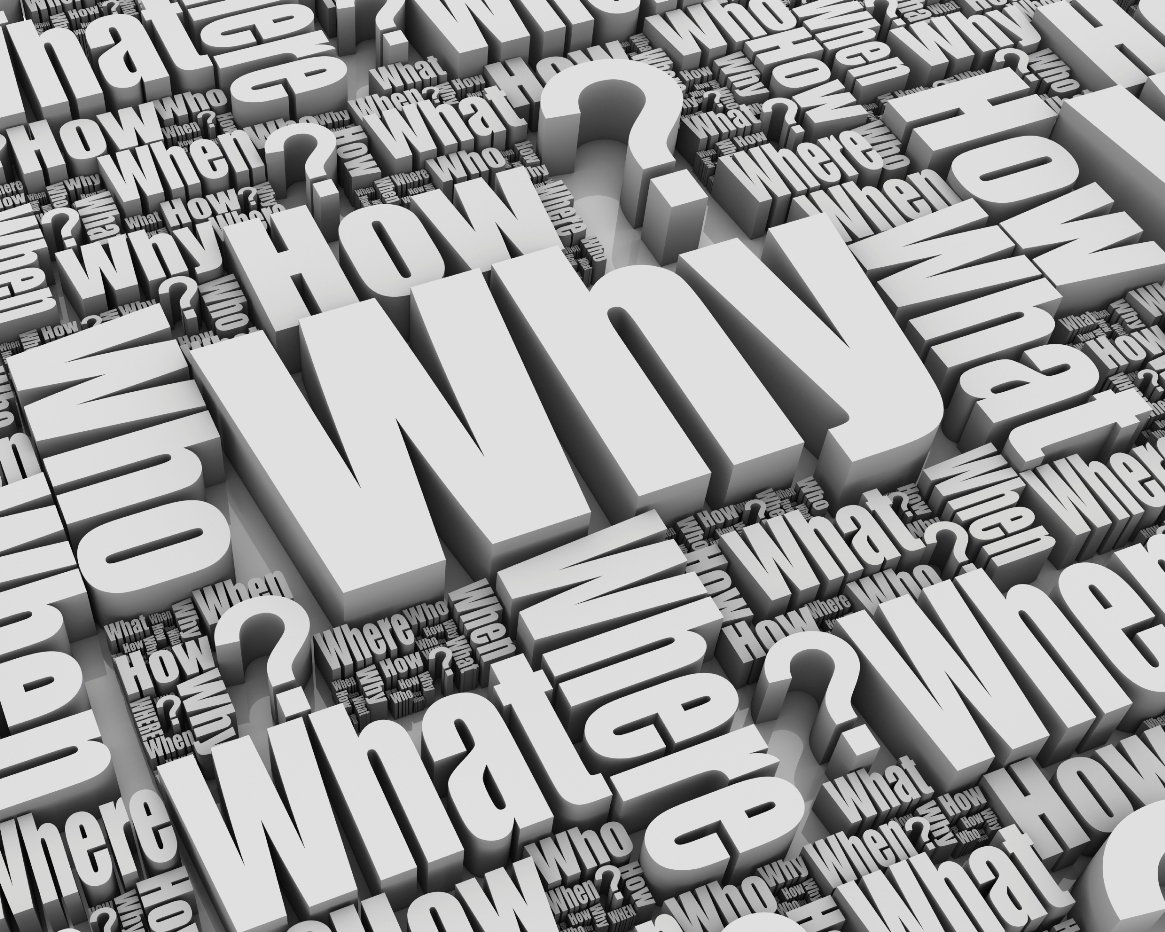Where are the outer boundaries of our mental box, that comforting space where we ‘believe’ the uniquely individual ‘me’ can be found? What is the limit of our ability to think and perceive beyond our current ‘belief’ system, to think outside the lines of our own perceptional box? Can we ever locate a clearly defined line of demarcation where we cross over from all that ‘we’ believe is ‘me’ and where the herding ‘we’ bulls ‘us’ over?
Is ‘our’ belief system entirely ‘yours’ or is it for the most part indoctrinated into you by ‘our’ culture and those who directly or indirectly influence our culture, thus by extension ‘you’? Who, or more accurately, what are ‘you’ if very little of substance differentiates ‘you’ from ‘us’? In many ways this is a chicken or egg question and it appears that a decent method by which we may answer it is to work backwards and examine what is ‘belief’ and what it means for us to ‘believe’.
One of the ways we have been mentally, emotionally and spiritually hijacked is through our language, a concept brilliantly described in Orwell’s classic work ‘1984’. For many, the words ‘believe’ or ‘belief’ are seen as strictly religious or fantastical thinking, and certainly not for the logical or scientific mind. In the worldview of most, which neatly encompasses their ‘belief’ system, there are ‘facts, science and math’, and then there is ‘belief’ and ‘faith’.
Sadly this is the Achilles heel of the average person (we are all more or less average when it comes to self awareness, though we love to ‘believe’ we are well above that mark) because by thinking this way, by believing in this manner, we create our own blind spots and exclude ourselves from what in many aspects we actually practice, essentially complete and total blind faith and belief in nearly all facets of daily thought and living.
How much of our thought, of our daily thinking, is original or organic and how much is slightly modified, then enthusiastically regurgitated, cultural beliefs indoctrinated into us from an early age. Reinforced by the echo chamber of news, advertising and TV programming as well as movies, books, social media, science, economics and politics, can any of us ever really tell which thoughts are ‘ours’ and which were created to be ours via cultural conditioning. Unless we force ourselves to first obtain, and then maintain perspective, it all becomes a blur of flashing lights and background noise to be willingly, even eagerly, accepted as just the way things are.
Our society is obsessed with the holy grail of facts, absolutes, and conclusive answers. We are taught as soon as we can comprehend that this is the way things are and we know these things to be true. We view our recent ancestors as backwards and uninformed, cavemen for all practical purposes, yet we never seriously consider that we are just as uninformed and will be considered so by the future ‘us’ in twenty, fifty, a hundred years from now.
There is no respect given (because none is seriously offered by ‘us’) to the inquiring mind willing to step outside the boundaries of conventional thinking, only empty vessels that wish to be fully indoctrinated into the present day belief system. The herd demands we believe what the herd believes and increasingly that belief is divorced from reality.
I suspect there are several reasons for this phenomenon. As I discussed in “The Science Delusion” the spectacular success of materials science (the mass production of ten million things) has contributed to the delusion that we know it all, that we have arrived, that there is certainty in many if not all things, and that we ‘know’ this ‘certainty’ with near absolute precision. All it needs is a few small tweaks here and there.
But I suspect something else is going on here and I don’t recall it being discussed much in the virtual circles I frequent. Until the advent of mass media, ‘modern’ man lived an existence surrounded almost entirely by physical reality, up close and very personal. In fact, until sometime after World War Two most homes did not even have central heat, indoor plumbing or a house wired for electricity. Life, to put it simply, was very raw.
There was once a mostly solitary and desperate immediacy to daily living (the present day homeless are quite familiar with this condition) and a mind that dwelled in fantasy and not focused on the needs of the here and now was often severely punished by Mother Nature. Dawdle too long in the petunias and you might die of exposure later because you did not put up enough firewood and salt away enough food.
Presently we trade our regimented labor for easily convertible script, also known as currency, which in turn we redeem for fundamental basics, creature comforts and desirable wants (as opposed to ‘needs’) that until 100 years ago were almost exclusively the realm of the very wealthy. This in turn has greatly diminished the immediacy of the here and now, and thus its apparent relevance and importance. While there is great debate over whether idle or free time has increased or decreased over the last hundred years, what we ‘do’ with our free time has dramatically changed, and in my opinion not for the better.
While man has always devoted some of his play time to alternative reality fantasy thinking, whether it was simply daydreaming on a warm spring day or reading a classic work of fiction, never in the history of ‘modern’ man has such a huge percentage of the population devoted hours upon hours every day exclusively to ‘suspending disbelief’. Nor have we done so in such a mentally and emotionally intrusive manner. I am, of course, speaking about television, movies and other forms of immersive mass media mind warping.
If you were to ask the average person if they understood the difference between ‘real world’ reality and TV or movie reality, you would be hard pressed to find someone who wasn’t absolutely certain they could tell the difference. And yet so much of the mass media we consume is integrated into our daily living so seamlessly that no longer can we clearly see the fine line of demarcation between reality and fantasy.
Just talk to an attorney, public defender or police officer about the public’s perception of justice and police processes after the public has drunk deeply from the CSI media cup for well over a decade and you will get an earful. We aren’t talking about ignorance here, as in a lack of knowledge, but rather deliberately distorted perceptions and programmed ignorance, a far more dangerous and easily controlled state of mind.
The only thing worse than someone who doesn’t know what they are talking about is someone who believes they do because they have been conditioned to think so, but still does not. The serially convinced are so much more dangerous to themselves and to others than the merely deluded delusional.
I don’t necessarily object to fantasy or fantastical thinking, of suspending disbelief in order to enjoy a depiction of alternative reality, which is essentially the altered mental and emotional state we enter into when consuming ‘pulp fiction’ mass media. In fact I was (and still am) a rabid fan of science fiction when I was a younger man. My problem is in the method of media immersion, completely passive rather than interactive and creative.
While reading (science) fiction, daydreaming or engaging in truly creative thought or artistic expression, the activity itself requires that we co-create the reality, to engage our creative energy and thinking process and actively interact. On the other hand mass media consumption requires of us, demands of us, very little (if any) real intellectual or creative effort on our part, only a willing suspension of disbelief and the near total surrender of our mind. Just turn on, tune out and tumble in.
The mass media alternative reality world is already imagined, produced and packaged for us by others and we are simply a passive recipient of the information download, or programming as the networks readily admit it is called. We are just along for the ride so buckle up, open your eyes wide and fully disengage the discerning mind. Suspending disbelief in three, two, one………
Do some research on brainwaves during different activities, then compare the mind while reading, writing, even dreaming, and when passively watching the television or a movie. Even when the brain absorbs so called ‘educational’ documentaries, when viewed through the brain imaging MRI, the results are little different from “CSI” or “Days of our Lives”. Garbage in garbage out makes for a garbage mind, with the body soon to follow.
Not only are we being deeply programmed into hundreds of alternative realities, the cumulative effect of which we are increasingly unable to discern, but we are also being conditioned to remain in a near constant state of belief suspension, the most psychically, emotionally and spiritually vulnerable condition we could possibly allow ourselves to remain in.
Comparable to Pavlov’s dogs responding predictably to specific stimuli, we willingly and eagerly suspend disbelief while consuming pulp fiction on TV and other mass media. While we claim the ability to re-enter the ‘real’ world when the news or a commercial comes on, from what I have learned our brain wave pattern doesn’t change all that much when we switch from ‘True Blood’ to the bloody evening news and then back again.
And make no mistake about it; mass media news and other ‘real’ programming is just another form of prepackaged pulp fiction that we vacantly consume with little or no discernment between one alternative reality and another. The principal difference is that we have been conditioned to believe that the news is ‘real’, thus it is even more deeply absorbed into our psyche as ‘truth’ where it mixes and melds with other deeply programmed beliefs we mistakenly call facts, reality and truth.
Similar to an inch worm’s incremental progress, as long as the latest alternative reality conditioning is similar to the old one (it doesn’t need to be exact) we inch our ‘real world’ perception further and further away from reality and closer to the world our handlers create for us. This is one of the reasons predictive programming is so successful. Repeatedly plant the suggested meme seed now and reap the harvested alternative reality later.
Reflexively we fall into a state of passive receptivity when plopped in front of the boob tube. And as much as we may protest to the contrary, there is less of a tendency to apply critical thinking when in front of the glowing conditioning apparatus then when reading the exact same material or discussing it with others.
The brilliance behind this type of deep conditioning is that it targets our natural tendency to rationalize away any negative aspects under the guise of entertainment. “Hey, we’re just having some fun. It’s a TV show for crying out loud, not real life.” The programmer doesn’t need to convince us to suspend disbelief when we willing do so under the cover of fun for all. Open wide and say “Please sir, may I have moar”.
The latest programming phase started more than a dozen years ago with so called ‘reality TV’ programming, which supposedly features ‘real life’ people dealing with contrived difficulties in purportedly unscripted situations. While I agree that every action seen on the viewing screen is not strictly or rigidly scripted, both the characters and producer, along with the editing room, insert false conflicts and drama where little or none would normally exist, all under the pretence of a ‘game’ show. More importantly we are shown, and expressly informed, that something is ‘real’ when clearly it is not. So once again belief is engaged by suspending disbelief in order to swallow whole the patently unbelievable.
If we examine the term ‘suspending disbelief’ we realize that what we are asked to do, what is demanded of us in order to ‘enjoy’ a harmless little activity and accept our programming, is to ‘believe’ what we are seeing in order to internalize and embody it as real. Our imagination is the creator of our own personal reality so hijack that and you and I are effectively controlled.
Only if we accept what we are seeing and hearing as ‘real’ will we express emotion and empathy and fully engage in the alternative reality. This in turn enables and allows our ‘self’ to be fully assimilated Borg like into the proffered fantasy hook, line and sinker. When all the moving parts click the programming results are spectacular. Just watch the apparatus work its magic when imminent war is being announced or the next financial crisis ‘suddenly’ occurs.
Every twelve to fifteen minutes during prime conditioning time our primary programming is interrupted for commercial breaks during which, while our empathy and emotions are fully exposed and vulnerable, we are showered with sales ads precisely designed to do the same. Meaning we are programmed to desire whatever it is they are selling using our own fully exposed emotion and empathy as leverage against us. Talk about striking while the fire is hot.
I looked up ‘belief’ and ‘believe’ in several dictionaries and found near universal definitions that often had little to do with religion and much to do with everyday living and thinking. For example, from Merriam-Webster comes the following.
be·lief: noun, a feeling of being sure that someone or something exists or that something is true; a feeling that something is good, right, or valuable; a feeling of trust in the worth or ability of someone; a state or habit of mind in which trust or confidence is placed in some person or thing; a tenet or body of tenets held by a group; conviction of the truth of some statement or the reality of some being or phenomenon especially when based on examination of evidence.
be·lieve: verb, to accept or regard (something) as true, to accept the truth of what is said by (someone), to have (a specified opinion), to have a firm religious faith, to accept something as true, genuine, or real; to have a firm conviction as to the goodness, efficacy, or ability of something; to consider to be true or honest; to accept the word or evidence of.
Wow, I could not have said it better myself. Who among us has the courage and internal steadiness to examine ourselves for any and all traces of unexamined belief, then thoroughly remove all threads from our everyday use, all while maintaining some semblance of continuity in relationships, work, play and growth. Personally I find the task daunting at best and just about impossible at worst. But that doesn’t mean we shouldn’t even try.
Chapter Two coming soon.
03-04-2014
Cognitive Dissonance



